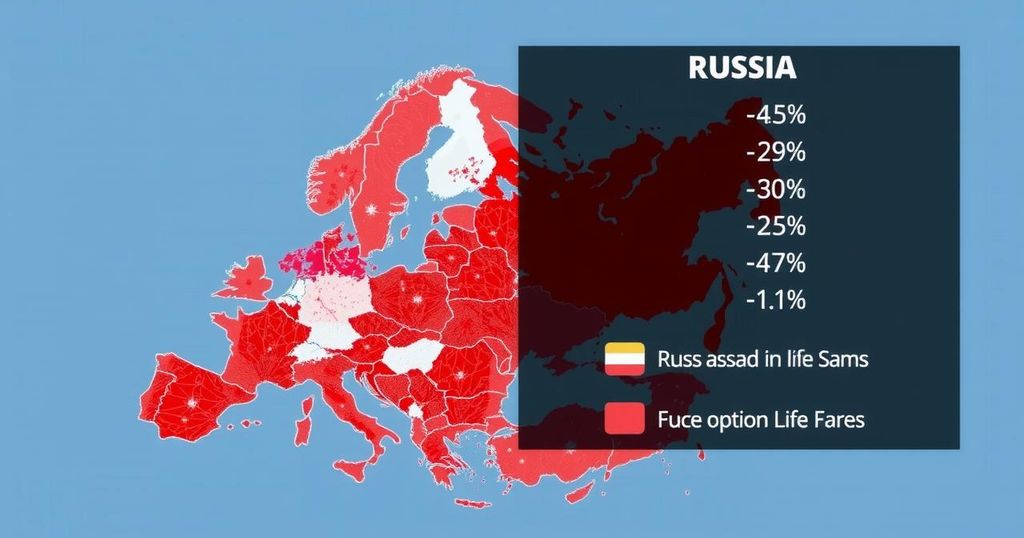Significance of Assad’s Downfall: A Setback for Russia’s Aspirations

The fall of Bashar al-Assad signifies a major setback for Russia after nearly a decade of support. Reports of his asylum in Moscow highlight Russia’s loss of influence in Syria. Concerns arise over the safety of Russian military bases, while state media seeks to shift blame onto the Syrian army for the regime’s collapse, emphasizing domestic security amid ongoing conflicts.
The recent upheaval in Syria marks a significant turning point for Russia’s influence in the region. After almost a decade of military support that sustained Bashar al-Assad’s presidency, his sudden downfall has left Moscow reeling. Reports indicate Assad fled to Moscow where he has been granted asylum; this development illustrates the Kremlin’s diminishing control over the situation. As the Assad regime crumbles, the Russian government has expressed deep concern over these events, signaling a potential crisis in its foreign policy and prestige.
Previously, Russia viewed its military intervention in Syria as a means to establish itself as a formidable global power capable of challenging Western dominance. In 2017, President Vladimir Putin pronounced the mission accomplished at a Syrian air base, touting Russia’s military success despite critiques regarding civilian casualties. However, the collapse of Assad’s government not only risks the strategic military bases Russia secured but also questions the long-term viability of its influence in the Mediterranean region.
Amidst these dramatic events, the safety of Russian installations in Syria is now uncertain. Russian military bases have been placed on high alert, with state media suggesting that they are not under immediate threat, but the situation remains fluid. Furthermore, Russian authorities have been looking for avenues to redirect blame, implicating the Syrian army for its lack of resistance against the opposition, which reveals the Kremlin’s urgency to distance itself from this setback.
As the leadership navigates this crisis, the narrative emerging from state media emphasizes the need for the Russian public to focus on other geopolitical concerns, notably domestic security linked to the ongoing conflict in Ukraine. Thus, despite the Kremlin’s investment in Assad, the situation reflects a shift in priorities in light of the challenges faced at home, underscoring a critical moment in Russia’s foreign policy and its aspirations in the Middle East.
The article discusses the implications of the recent political changes in Syria, particularly the fall of Bashar al-Assad, who had been a pivotal ally for Russia. Over nearly a decade, Russian military intervention has bolstered Assad’s regime, positioning Russia as a significant player in the Middle East. The sudden overthrow of Assad and his flight to Moscow underline a dramatic shift in control and the potential erosion of Russia’s prestige and strategy in the region. This situation raises questions about the future of Russian military bases in Syria and the Kremlin’s authority amidst escalating regional instability.
The fall of Bashar al-Assad is a substantial blow to Russian prestige and influence in the Middle East. The Kremlin’s inability to manage this transition reflects deeper challenges in its foreign policy, particularly as it seeks to assert itself on the global stage. The narrative being shaped by Russian media indicates an attempt to deflect accountability while maintaining focus on domestic security concerns, suggesting that the repercussions of Assad’s downfall may extend beyond Syria, affecting broader Russian interests.
Original Source: www.bbc.co.uk







